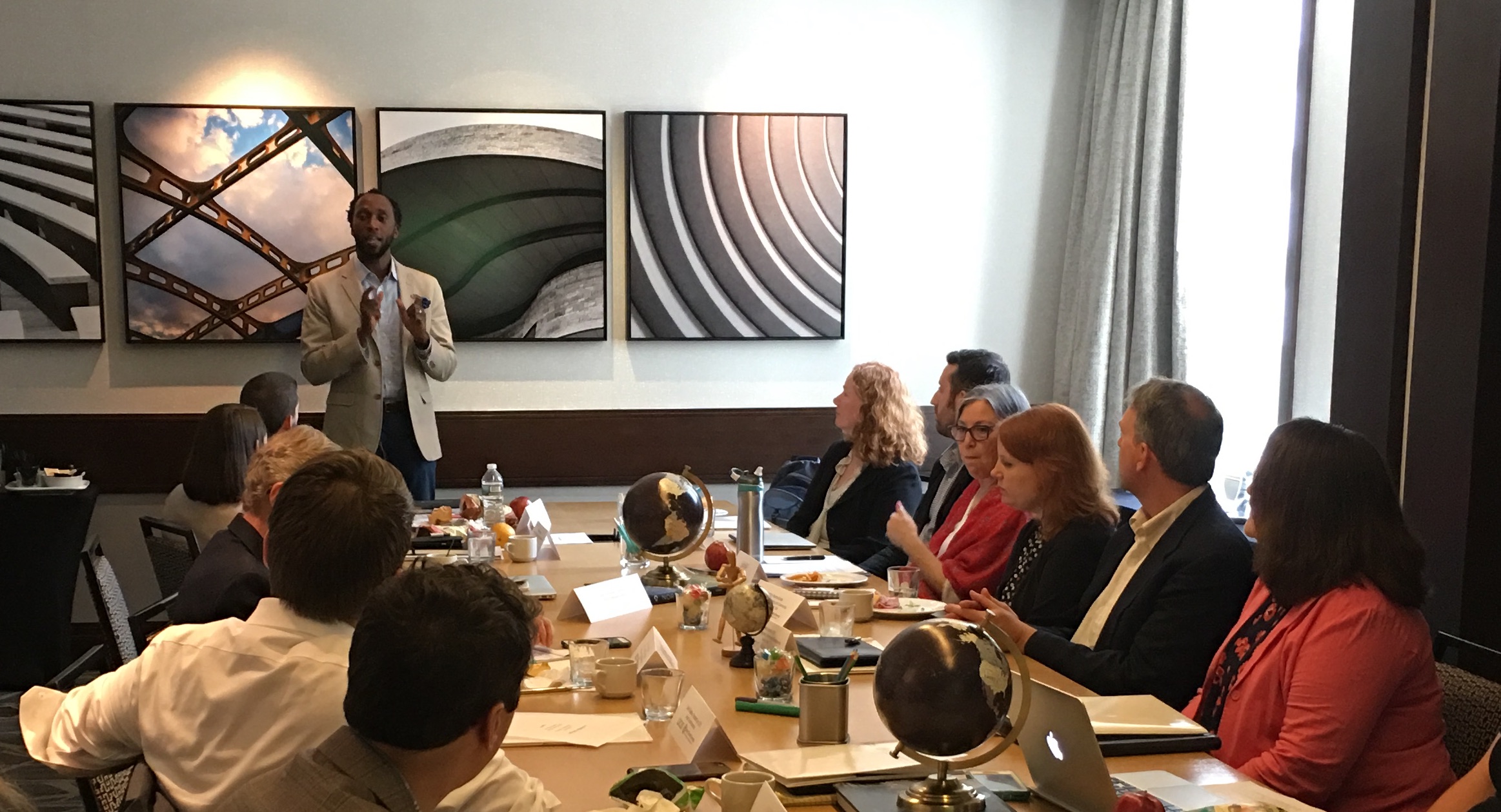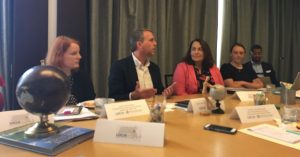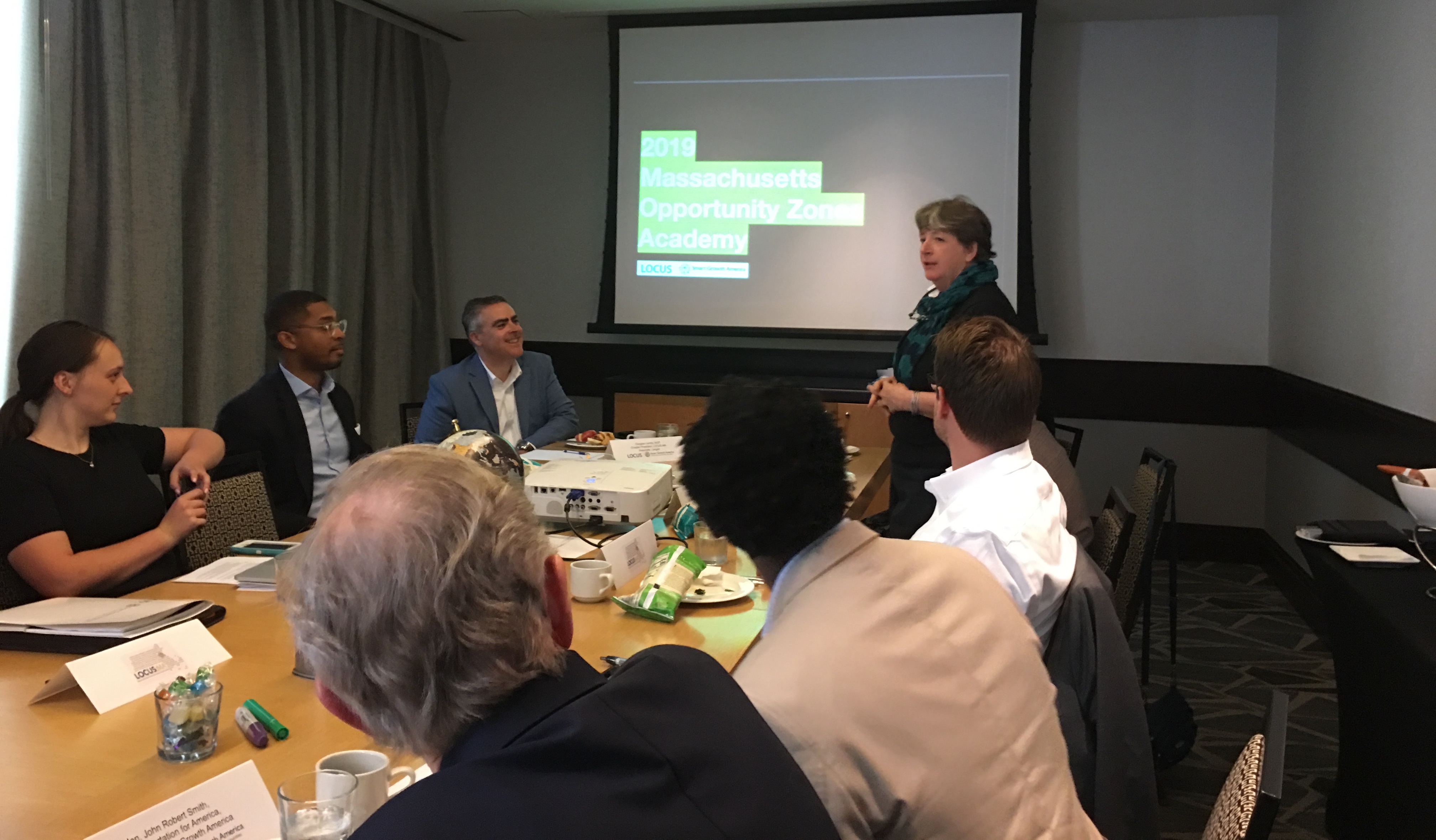
News
By Connor Ring, July 3, 2019
 2019 Massachusetts Opportunity Zone Academy kicked off last Sunday with four teams from Massachusetts convening in Washington, DC to learn and strategize about how to use the new federal Opportunity Zone tax incentive to spur private, triple-bottom-line development and investment in their communities.
2019 Massachusetts Opportunity Zone Academy kicked off last Sunday with four teams from Massachusetts convening in Washington, DC to learn and strategize about how to use the new federal Opportunity Zone tax incentive to spur private, triple-bottom-line development and investment in their communities.
The newly created Opportunity Zones incentive will bring trillions of dollars in new private investment into pre-designated, low-income communities around the country. The million-dollar question is whether or not these massive investments will benefit the people living in these communities now, or will they be displaced as new interest and development brings increased property values and rents? And will the incentive support more unsustainable, car-dependent sprawl, or walkable, mixed-use communities with a variety of housing options for everyone? Our new Massachusetts Opportunity Zones Academy is focused on helping these four teams selected—representing Fitchburg, Salem, Greenfield/Montague, and Barnstable/Yarmouth—realize their deep commitment to sustainable and equitable growth and development strategies.
After an introduction by Calvin Gladney, President and CEO of Smart Growth America and Douglas Landry, President of LOCUS Massachusetts, the teams were given an overview of the Opportunity Zone tax incentive by Christopher Coes, Vice President of Land Use and Development at Smart Growth America and Director of LOCUS.
Following the Q&A session, Tom Daniels, Director of Planning and Community Development for the City of Salem, remarked that the presentation had been more elucidating than any of the webinars or talks that he had previously attended. “I learned a lot from the speakers and colleagues from across the country. It was energizing to hear all of the good work going on to strengthen our communities,” said Daniels.

Following a roundtable discussion, the teams broke out into sessions with LOCUS’ policy experts to begin crafting and tailoring the scope of technical assistance they are going to receive from LOCUS. The four Massachusetts teams represent a diversity of geography and urban form, and each face unique development challenges.
“I think the Opportunity Zone Academy session brought to light the fact that each community has its own unique needs and that there is no one-size-fits-all approach on how to take advantage of the designation,” said Landry.
Marta Goldsmith, Director of the Form-Based Codes Institute, worked with Barnstable and Yarmouth. “The two communities on Cape Cod—Barnstable and Yarmouth—are quite different, but share some of the same challenges for creating walkable urban development. Barnstable is the economic center for the Cape and, as such, has areas within their Opportunity Zone that have the potential for new development that improves the urban form and strengthens the year-round economy. Yarmouth is seeking strategies to encourage the consolidation of small lots in the Opportunity Zone to reposition dated seasonal hotel stock to create more year-round economic activity.”
Kyle Pedicini, Economic Development Coordinator for the Town of Yarmouth, is excited about the prospect of learning from other communities. “The 2019 LOCUS National Leadership Summit was an excellent opportunity to learn about what other cities and towns around the country are doing to attract smart growth development in their communities. Examining those communities’ policies, practices, and leadership strategies was very insightful, and we are excited to use what we’ve learned this past weekend to catalyze prosperity, equity, and resilience in Yarmouth and Barnstable for generations to come.”
Mary Jo Bohart, Director of Economic Development for the City of Fitchburg, appreciated the opportunity to interact with experts from the development community.
“Scheduling the Massachusetts Opportunity Zone Academy kick-off to coincide with the ‘Opportunity Rising’ conference was a brilliant move by the LOCUS team,” Bohart said. We were able to interact with dozens of seasoned developers as well as countless thought leaders in the area of ‘triple-bottom-line’ impact investing. I found the two-day experience to be very inspiring and also empowering as the City of Fitchburg prepares to make full use of its two designated Opportunity Zones. I strongly believe that this new economic development tool will become yet another reason why our community is attractive to new commercial development.”
 Tom Skwierawski, Executive Director of Planning and Community Development for the City of Fitchburg, left the session feeling more knowledgeable about Opportunity Zones. “We’ve been kicking around the idea of Opportunity Fund investment for quite some time, but I left the Sunday meetings not only better-equipped with how to utilize it, but with a clearer plan on who and how to engage developers on the topic.”
Tom Skwierawski, Executive Director of Planning and Community Development for the City of Fitchburg, left the session feeling more knowledgeable about Opportunity Zones. “We’ve been kicking around the idea of Opportunity Fund investment for quite some time, but I left the Sunday meetings not only better-equipped with how to utilize it, but with a clearer plan on who and how to engage developers on the topic.”
Over the next five months, this cohort of academy communities will work with LOCUS experts and community partners to build their capacity to guide Opportunity Zone investment to create more equitable, resilient places. Our hope is that participants will learn from each other, and that the academy will serve as a framework to support knowledge-sharing amongst Massachusetts’ Opportunity Zone cities and towns. Check back for updates on the Academy’s progress.
Related News

© 2025 Smart Growth America. All rights reserved
Site By3Lane Marketing








